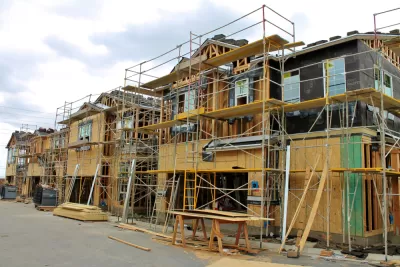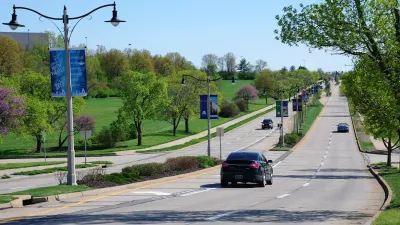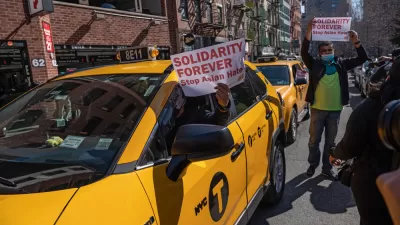How will COVID-19 and its economic consequences affect housing supply?

Over the last few years, I have criticized anti-housing activism, and written about its opponents in the pro-housing YIMBY (Yes In My Back Yard), and PHIMBY (Public Housing In My Back Yard) movements. My question now: Will any of these movements become more popular as a result of COVID-19?
It seems to me that there are a few good reasons why the pro-housing YIMBY and PHIMBY movements should gain traction. The COVID-19 epidemic has led to double-digit unemployment, so cities need jobs more than ever. And new construction means new construction jobs. Construction workers, in turn, will spend money on other goods and services, revitalizing the economy.
Of course, new housing is typically more costly than older housing, because of increased construction costs. But this is probably less true today than it would have been a year ago; land costs typically fall during economic downturns, making housing easier to build. For example, in metropolitan Boston land price per house soared from $67,803 in 1984 to over $150,000 in late 1989, then declined to $106,828 in 1992, then soared to over $400,000 in 2005, and then declined to $261,685 in 2012 before rising again. (For data on other metro areas go to the "Quarterly MSA Dataset," at this website.) And if the growth of telecommuting empties out office buildings, that means more buildings can be turned into housing.
Moreover, some common anti-YIMBY arguments are less persuasive than they were before COVID-19. For example, opponents of new condominiums sometimes claim that they will be purchased by rich foreigners. (I explained here why this argument was silly.) But now that the United States is suffering from higher COVID-19 infection levels than other rich countries, it seems unlikely that there will be much foreign demand for housing anywhere in the United States over the next year or two.
A related argument is the "induced demand" theory: the idea that big cities are so desirable that new housing will merely induce demand rather than lowering prices. Since rents in large cities are no longer rising, it seems likely that demand for urban housing is stagnant or declining, so this argument is obviously frivolous.
Anti-housing activists might use COVID-19 as an argument against new housing, by equating density with disease. As numerous commentators have pointed out, dense cities often have lower infection rates than their suburbs—but since land use decisions are often based on emotion rather than data, this fact might not be politically important. On the other hand, new housing might actually reduce the risk of infection by making it easier for people not to share the same dwelling. For example, if a city allows you to build a little cottage on your property for Grandma, you will not see Grandma as much as if she was living in your house, thus making it less likely that you will infect Grandma.
COVID-19 might also reduce YIMBY support by making environmentalist arguments for urban housing less persuasive in the short run. YIMBYs tend to be vigorously support housing in places with adequate public transit, because its inhabitants drive less and therefore pollute less. But because the media, and even transit planners, have vigorously discouraged Americans from using public transit in recent months, this argument may seem less persuasive than usual.
Additionally, affluent areas may be more anti-housing than usual because of fear of crime. Since the George Floyd protests began, violent crime seems to have increased in at least a few central cities (for example, see here, here, and here).* As suburbanites (or even residents of well-off intown neighborhoods) read media coverage of such crime spikes, they might be even more afraid than usual to allow new housing that might bring lower-class people into their neighborhoods.
If this is the case, public housing is likely to be more politically toxic than it was a year or two ago, because public housing residents tend to be poor and middle-class people will be afraid to live near the poor. As a result, the PHIMBY movement is likely to lose political support.
On the other hand, our economic downturn is likely to increase the need for such housing, as millions lose their jobs. But high unemployment reduces local sales tax revenue, which means state and local governments will have even less money to build or subsidize such housing even in places where it is politically popular.
*Most big-city police departments now have month-by-month (or even week-by-week) crime statistics, so you can see whether crime has increased in recent weeks. Rather than collecting dozens of links, I refer you to Google.

Planetizen Federal Action Tracker
A weekly monitor of how Trump’s orders and actions are impacting planners and planning in America.

USGS Water Science Centers Targeted for Closure
If their work is suspended, states could lose a valuable resource for monitoring, understanding, and managing water resources.

End Human Sacrifices to the Demanding Gods of Automobile Dependency and Sprawl
The U.S. has much higher traffic fatality rates than peer countries due to automobile dependency and sprawl. Better planning can reduce these human sacrifices.

Seattle Transit Asked to Clarify Pet Policy
A major dog park near a new light rail stop is prompting calls to update and clarify rules for bringing pets on Seattle-area transit systems.

Oregon Bill Would End Bans on Manufactured Housing
The bill would prevent new developments from prohibiting mobile homes and modular housing.

Nashville Doesn’t Renew Bike Share Contract, Citing Lost Federal Funding
The city’s bike share system, operated by BCycle, could stop operating if the city doesn’t find a new source of funding.
Urban Design for Planners 1: Software Tools
This six-course series explores essential urban design concepts using open source software and equips planners with the tools they need to participate fully in the urban design process.
Planning for Universal Design
Learn the tools for implementing Universal Design in planning regulations.
City of Moorpark
City of Tustin
Tyler Technologies
City of Astoria
Transportation Research & Education Center (TREC) at Portland State University
Chaddick Institute at DePaul University
Regional Transportation Commission of Southern Nevada
Toledo-Lucas County Plan Commissions






























